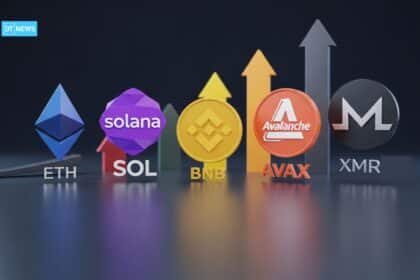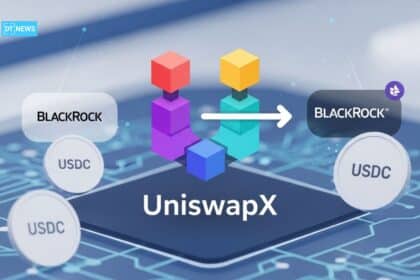Top Altcoin Picks After a Market Dip: Coins Showing Relative Strength vs BTC
This article was first published on Deythere. The recent crypto slump has…
HYPE Price Prediction 2026: Can Bulls Hold $28?
This article was first published on Deythere. As the crypto market wades…
BlackRock BUIDL Launches on UniswapX With Onchain USDC Swaps
This article was first published on Deythere. BlackRock has now brought its…
Cardano LayerZero Integration Unlocks $80B Assets
This article was first published on Deythere. The Cardano LayerZero integration marks…
Bitcoin Price Prediction: Polymarket Traders Expect a Dip towards $60K
A fresh Bitcoin price prediction is taking shape in the one place…
Coinbase Launches AI-Driven Agentic Wallet Platform
This article was first published on Deythere. Agentic Wallets are moving from concept…
Will Stablecoin Yield Survive the Clash Between Banks and Crypto?
This article was first published on Deythere. The clash over whether stablecoins…
XRPL Overtakes Solana With $1.75B in RWA Assets
XRPL vs Solana RWA tokenization has entered a new phase as the…
Sui Launches suiUSDe Synthetic Dollar With Ethena Backing
This article was first published on Deythere. SuiUSDe, a synthetic dollar backed…
Altcoin Season Index Spotlight: APEMARS 9763% ROI Powers Next Crypto to Explode While Canton Launches Payroll, WLFI Slides
Crypto traders often joke that the market moves faster than a meme…




















































































































